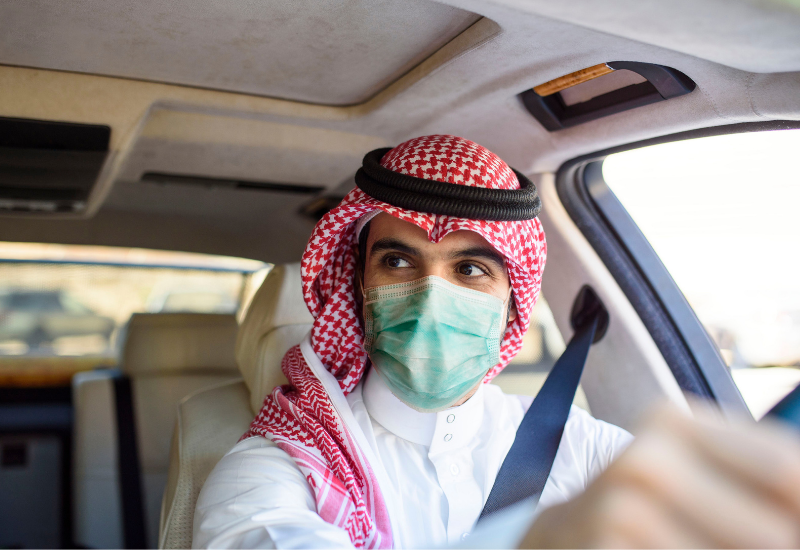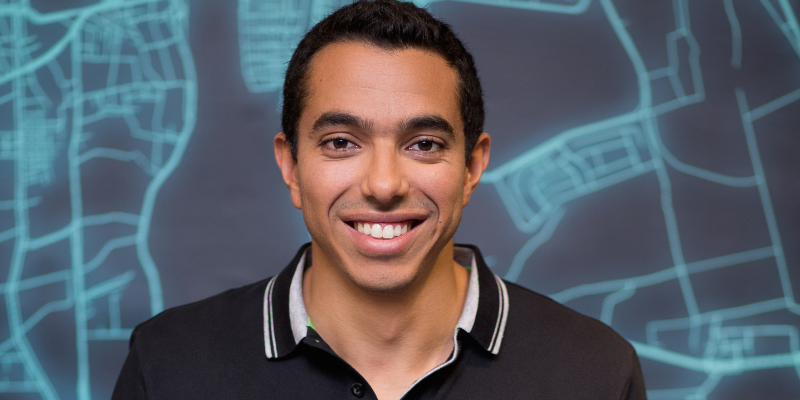Emirates Man – The Winter Escape Issue – Download Now
Tino Waked, Uber’s Regional General Manager for Middle and Africa on amplifying its presence in the region.
What do your first 30 mins of the day look like, your morning routine?
The first 30 minutes of my day are usually my favourite. It starts with my two-year-old son, Mimo waking me up around 6:30 am. He is an early riser and is determined to get a good hour of play-in with his mother and me before heading off to nursery. I usually don’t start my mornings with breakfast; however, a good cup of tea does the job. Mimo usually joins me on the balcony as I start my day and we discuss several topics which are of interest to him. The last is his fascination with the Burj Al Arab, which we drive by on the way to his nursery every morning. I try to do a quick scan of my email to see if there are any urgent developments overnight that I need to attend to. The Uber App operates 24/7, and with trips requested over the App every second and team working literally across the entire world in different time zones, there is always something important going on.
How has Uber evolved both in terms of brand and logistics since its launch?
Uber has come a long way since we launched globally back in 2009. When we first launched across MEA, ride-hailing was a new concept. What started as a way to tap a button and get a ride, has today created billions of moments of human connection as people around the world go to all kinds of places in different ways with the help of our technology. We entered the scene of modern transportation through technology and quickly grew to become a very valuable tech start-up. It started with the simple idea of ordering a ride at the tap of a button. At the heart of that vision were convenience, accessibility, and reliability which continues to be our guiding star. Today, we’re emerging as a platform for mobility, especially in the Middle East. Our new aim is to become a one-stop-shop for digital access to transportation and daily e-commerce needs so that people’s phones can replace their personal cars. That’s why we have begun incorporating bikes, scooters, and more into our app. The Middle East is perfect for this space as we tap into local modes of transport. We’re working with relevant policymakers, industry leaders, technology companies, and regulators to create an enabling environment where innovation can thrive. What started as a luxury offering is not where we are today. While those offerings continue to exist, our brand and logistics have evolved, making travel more affordable, accessible, and locally relevant. That is how we want riders, drivers, and partners to think of us.

How has your background contributed to the success of Uber?
I’ve been involved in the Uber business in the region for about seven years. I started as the Head of Operations in Egypt, visualising a congestion-free future for the country. I was then appointed GM for Egypt, followed by GM for MENA, and today oversee the MEA business. I’ve been responsible for building the business in the region and Uber has come a long way since. I helped onboard the first driver on the app in Egypt, eventually expanding to 81 cities across MEA in the last seven years. I have a BA in Economics from Rutgers University and an MBA from INSEAD and have previously worked at McKinsey and Co. for over two years. I’m passionate about the importance of innovation and the potential of technology and proud to see how Uber has impacted the lives of people in the region by transforming the travel experience.
How have you tailored Uber to best fit the needs of those in the UAE?
Our team at Uber believes in choice, and we believe our technology can complement cities like Dubai to supplement their current transportation network in order to reduce congestion, increase safety, service levels, and optimise the efficiency of public transport systems. We’ve also worked closely with the UAE government, by aligning ourselves to the country’s goals to create economic opportunities for Emiratis by launching in Abu Dhabi with regulations that empower them to drive on these apps. Emiratis are able to drive via the Uber app using their private cars at their own flexibility, thereby opening up new earning opportunities and allowing drivers to give tourists a taste of local culture. We also onboarded existing taxi services in several markets to meet the existing public transport systems. In turn, this allowed existing drivers to access Uber’s technology for another source of earnings.
What are Uber’s imminent plans in the Middle East?
Today, we’re building locally for markets by using our global experience. We want to understand and address the challenges that people in the region face when it comes to requesting transportation and using the Uber app, and to find solutions that meet their needs so that everyone can have access to the technology and, ultimately, mobility. As more people get vaccinated and cities across the region begin to open up, the use of our mobile technology is rapidly recovering to pre-covid levels. We believe that Uber has a critical role to play in helping revive local economies and supporting the recovery of the tourism sector. In the near future, we’re committed to leading the way in electrifying the ride-hailing sector and encouraging more people to replace private car trips with shared, electric multimodal mobility options.
The UAE encourages and cultivates an environment in which to thrive in business – how have you experienced this?
When we launched in the UAE in August 2013, we flew in a team of three people to prepare the ground for the launch. From these streamlined beginnings, and the launch of the app with just 50 onboarded cars, we’ve expanded to thousands of drivers on the app across the UAE.
The UAE is a massive market, it offers ease of access and innovations through technology.
Regulators in the market are open to collaboration and are seeking continuous advancement, which allows innovation within the private sector to thrive. We’re looking to the UAE and the wider Middle East region as we strongly believe our growth over the next decade will be defined by this region. In August last year, we doubled down on our Middle East expansion by launching our services in Sharjah and have expanded our offerings in the UAE to include several options like Uber Select, Uber by the Hour, Uber Comfort, Uber Black, Uber XL, Uber Family and Uber Green.
What have been the challenges to building or scaling Uber in the region and how did you overcome them?
We entered a region that had been relying on hailable taxi’s for a very long time, so introducing a new form of transportation and technology that people and governments had to adapt to, was a challenge. We’ve had to educate people on the value of flexible economic opportunities and demonstrate the value of choosing Uber and ride-hailing. We’ve worked closely with regulators and partners across the board to provide the right flexible experience and identified opportunities that have transformed our business globally. From working with regulators in the UAE to allowing Emiratis to drive using the Uber platform, the overall experience has diversified into new sectors. Being the global firsts especially for Saudi Arabia, the ‘women preferred view’ allows women drivers to filter their requests and only pick female riders. Another development is the testing of electric vehicles in Egypt, which now allows us to work closely with policymakers and regulators to turn challenges into opportunities and make the travel experience more reliable, comfortable and accessible for riders and drivers.

So much has been achieved in the UAE in 50 years, do you feel this pace and scale of growth is reflected in the businesses based here?
The UAE has one of the most supportive ecosystems for successful business around the world. It is a place where the world’s most influential multinational corporations operate profitably and continue to expand their footprint. It is a massive market with a growing young population and an environment that allows businesses and innovation to thrive. Recently, it has also established itself as among the best places to provide everything an entrepreneur might need to maintain and build a business from the ground up. From bootstrapping and financing to the logistical details that can make or break a business, each component contributes to the success. With the World Expo taking place in Dubai this year, significant partnerships have already been formed with global players across industries. It is a unique platform for large-scale businesses, SMEs, start-ups, entrepreneurs, governments, and civil society organizations to come together to build deep partnerships and enable meaningful, long-term growth. Dubai is a truly global city, and the UAE is an emerging soft power in the 21st-century power paradigm context. This could not have been realized without the business agility, openness and focus of the Union.
This year we celebrate the UAE’s 50th Anniversary – what makes this region unique to you?
The UAE has seen tremendous growth over the last 50 years and it continues to establish itself as a global economic center. Its open and tolerant approach to a multi-cultural environment, economic progress, and industry diversification has enabled growth on an unprecedented scale. We operate in over 10,000 cities, and nearly 71 countries and are proud to call UAE one of our global regional hubs. Through setting up in Dubai, we have provided millions of residents and tourists with a reliable, safe, and convenient way to get around since launching in Dubai in 2013. The UAE is committed to driving urban mobility and leading smart cities of the future, and we believe we have an important role to play in facilitating this vision, advancing the mobility system, and ultimately improving people’s quality of life.
Emirates Man – The Winter Escape Issue – Download Now
– For more on how to look smart and live smarter, follow Emirates Man on Instagram
Images: Supplied












